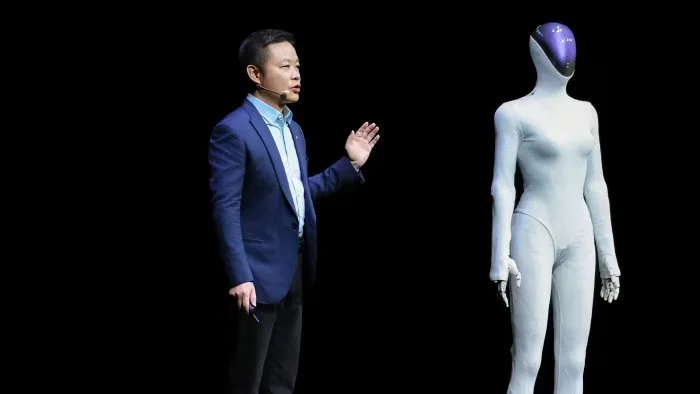XPeng Moves to Pair Humanoid Robots with Solid-State Batteries
Chinese EV maker XPeng has announced plans to integrate solid-state batteries into its upcoming humanoid robots, targeting commercial deployment by late 2026. The company says the switch to solid-state cells — which replace flammable liquid electrolytes with solid conductive materials — could significantly reduce robot weight and improve safety, a priority for machines operating closely around people.
XPeng’s CEO He Xiaopeng suggested that humanoid robots may actually accelerate the mass-market adoption of solid-state batteries faster than electric vehicles, given their safety and energy-density requirements. The company is currently in discussions with both domestic and international battery suppliers.
Xpeng chief He Xiaopeng said robots could help drive the commercialisation of solid-state batteries
XPeng envisions its first wave of humanoids working as sales assistants, tour guides, and factory support robots, including deployments with China’s steel giant Baowu. The robots will also use XPeng’s own AI chips, further aligning the company’s automotive and robotics R&D.
Solid-state batteries are widely seen as safer and higher-performance, but still face cost and scalability challenges. Industry analysts caution that large-scale commercialization may take years, even as companies like Toyota, CATL, Panasonic, and Maxell continue development.
Still, XPeng is betting that humanoids — and eventually low-altitude aircraft — could be the platforms that finally push solid-state batteries into mainstream production.
